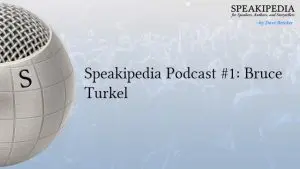 Many people think of “speakers” as people who perform on big stages, but keynote speaking is only part of what professional speaking is about. Choose the best speaking business model for you.
Many people think of “speakers” as people who perform on big stages, but keynote speaking is only part of what professional speaking is about. Choose the best speaking business model for you.
Keynote speakers have a “one-and-done” business. No matter how good they are, their client will almost certainly hire a different speaker to close next year’s conference. Keynote engagements usually pay well, but securing the gig usually means a lot of prospecting work and competition behind the scenes.
Trainers and breakout speakers are generally paid less than keynoters per engagement, but they find more opportunities to get booked for repeat engagements. A large company might hire one training company to work with numerous groups over a long period of time. Long-term relationships with a handful of clients can mean steady income and less work on the prospecting and sales side.
Coaches and consultants speak—sometimes for free—to interest prospective clients in their programs. Offer to speak at a local Rotary Club or chamber of commerce, offer good value, and get people interested in what you have to offer. Prospects who are relevant to your programs will come up to you afterward to connect. If you’re a capable speaker, this marketing tactic can be free, fun, and lucrative.
Beyond that, teachers, litigators, and many other professionals don’t even think of themselves as “professional speakers,” even though they talk and share their expertise for a living.
So when you think of “speaking,” look beyond the keynote stage. You might find a way to build a profitable speaking business in your own back yard.





